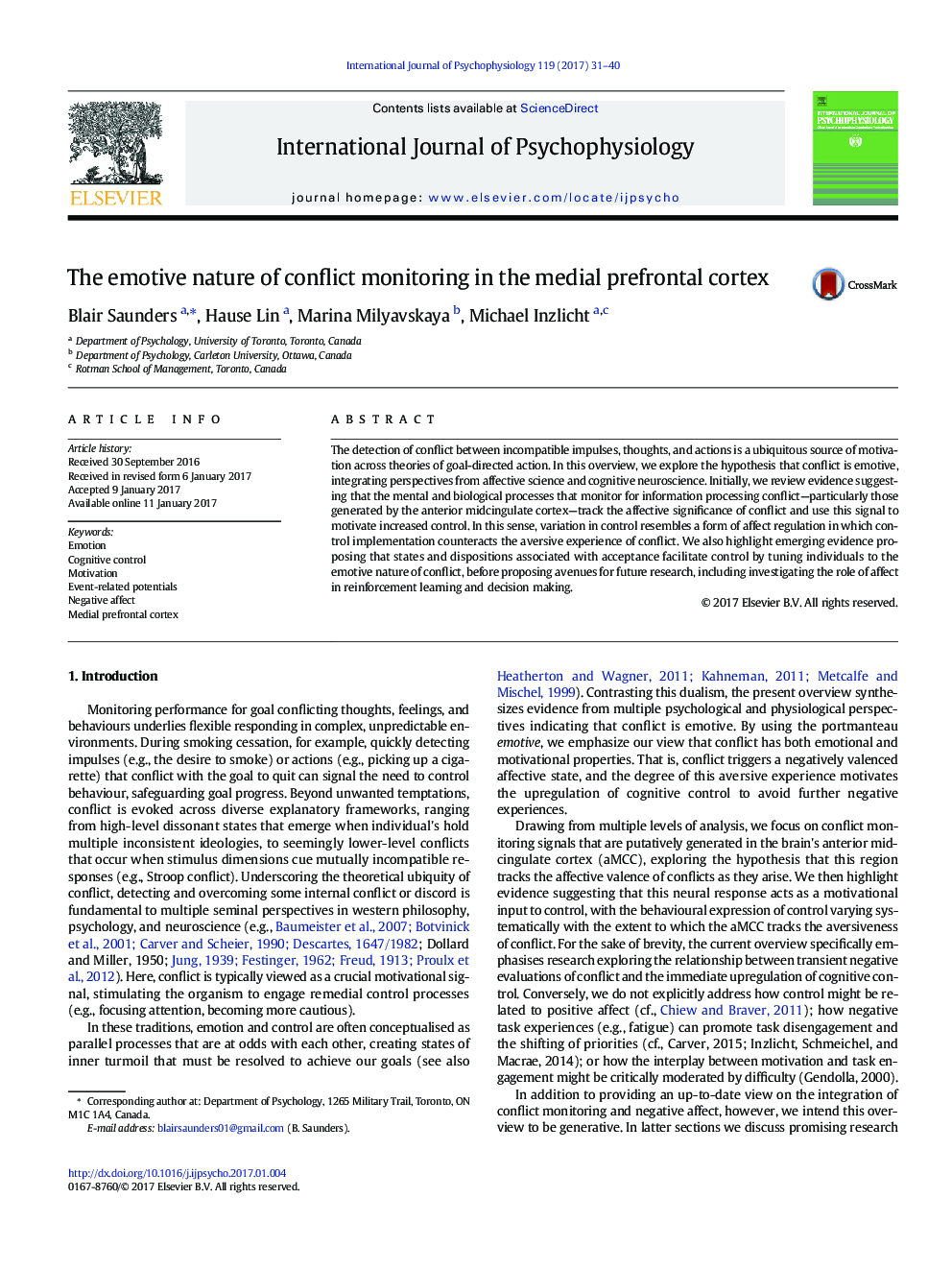| کد مقاله | کد نشریه | سال انتشار | مقاله انگلیسی | نسخه تمام متن |
|---|---|---|---|---|
| 5042272 | 1474377 | 2017 | 10 صفحه PDF | دانلود رایگان |
- Conflicts during cognitive control trigger observable negative affect.
- The valence of conflict is tracked by the anterior midcingulate cortex.
- Negative evaluations of conflict motivate increased control implementation.
- Openness and acceptance can aid the adaptive use of conflict-related affect.
- These ideas generate new questions for the fields of learning and decision making.
The detection of conflict between incompatible impulses, thoughts, and actions is a ubiquitous source of motivation across theories of goal-directed action. In this overview, we explore the hypothesis that conflict is emotive, integrating perspectives from affective science and cognitive neuroscience. Initially, we review evidence suggesting that the mental and biological processes that monitor for information processing conflict-particularly those generated by the anterior midcingulate cortex-track the affective significance of conflict and use this signal to motivate increased control. In this sense, variation in control resembles a form of affect regulation in which control implementation counteracts the aversive experience of conflict. We also highlight emerging evidence proposing that states and dispositions associated with acceptance facilitate control by tuning individuals to the emotive nature of conflict, before proposing avenues for future research, including investigating the role of affect in reinforcement learning and decision making.
Journal: International Journal of Psychophysiology - Volume 119, September 2017, Pages 31-40
